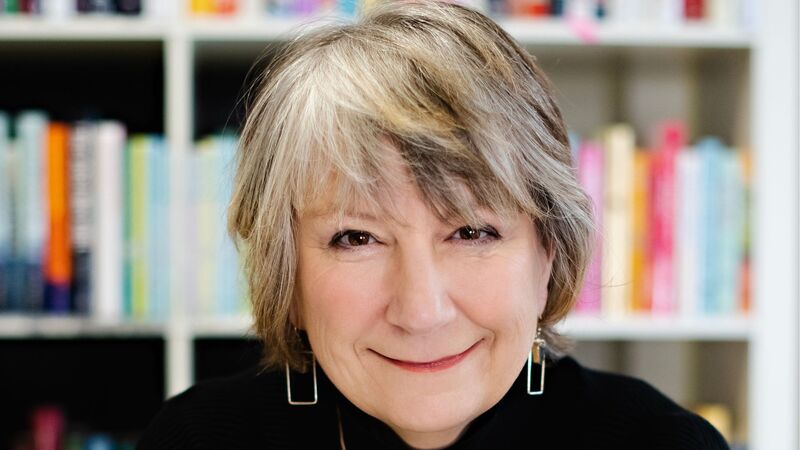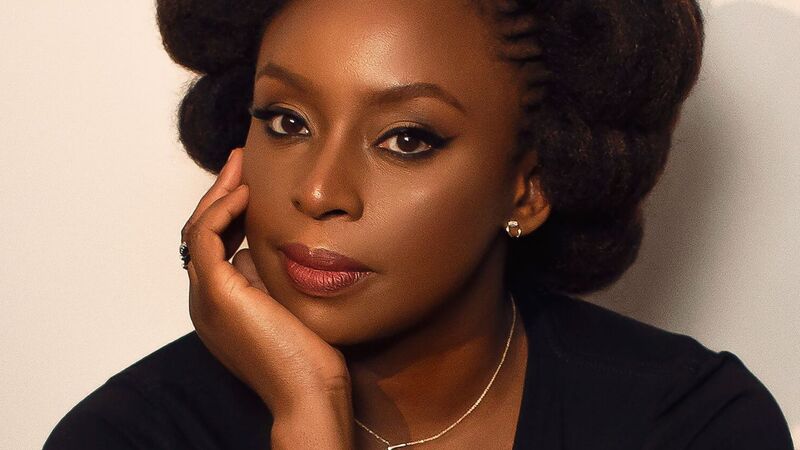You are viewing your 1 free article this month. Login to read more articles.
Books of the Year: Newspaper review round-up
Last year marked our first round up of the numerous “books of the year” features across the media. It saw a total of 660 books being touted by various critics, writers and celebrities. This year, our spreadsheet collating the reviews boasts 910 titles that have been recommended across several features in 10 different publications.
As well as the broadsheets, this year we have included the Radio Times and the Economist. The Observer, the Guardian and the Mail on Sunday also incorporated choices by a wide variety of literary figures and celebrities. The Observer collated picks from 56 people, and asked them what book they hope to find under their Christmas tree this year. (Novelist John Banville requested the £376, five-volume boxed set Art and Architecture of Ireland from Yale University Press.)
Comfortably gaining the most attention was H is for Hawk by Helen Macdonald (Jonathan Cape), which was mentioned in the features of all the newspapers, including three votes from various Guardian features.
Despite fiction winning more column inches than last year, none of the most selected novels are débuts—in fact, the majority are by established names who released eagerly awaited novels: Sarah Waters, David Nicholls, Marilynne Robinson and Colm Tóibín, to name a few.
This year’s Man Booker Prize judges revealed the battle for the award was between Richard Flanagan’s The Narrow Road to the Deep North (Chatto & Windus) and Ali Smith’s How to Be Both (Hamish Hamilton), and this is reflected in the reviews, with the books garnering nine and 10 nods respectively—considerably more than the other Booker-shortlisted titles. A more in-depth look at how this year’s Booker titles have been received is below.
The strong children’s market is also reflected, with several titles cropping up on lists not dedicated to kids’ titles. The most reviewed titles in the genre are revealed below, alongside a more detailed look at the market for cookbooks and historical biographies, and a look at celebrity titles that amassed the most column inches. The full list of most-reviewed titles, including the top 24 most mentioned books, can be found in the print or digital edition of The Bookseller.
Five children's titles on the prize hunt
Four of the five most mentioned kids’ titles in the end-of-year round-ups are currently shortlisted for prestigious children’s book prizes.
Five Children on the Western Front (Faber Children’s), Kate Saunders’ sequel to E Nesbit’s Five Children and It, was mentioned four times as a 2014 favourite, as well as being named as the book that novelist Helen Dunmore was hoping to find in her stocking. Amanda Craig described it as “heart-rending” in the New Statesman, while Lorna Bradbury deemed it “at once playful and moving” in the Telegraph.
Saunders’ title is on the Costa Children’s Book Award shortlist alongside Michael Morpurgo’s Listen to the Moon (HarperCollins Children’s Books), another popular choice. In the Times, Alex O’Connell named it as her favourite Morpurgo title to date, as it “merges historical fact with ripe imagination”.
Three other children’s titles were common sightings: Animalium by Jenny Broom and Katie Scott (Big Picture Press); A Song for Ella Grey by David Almond (HCCB); and Emma Chichester Clark’s picture book Bears Don’t Read! (HCCB). A Song . . . is on the inaugural Bookseller YA Book Prize shortlist, with Animalium on the Blue Peter Book Awards shortlist. In the Times, O’Connell said of Almond’s latest: “His poetic prose seeps into your blood like word venom until you can’t imagine reading anything else.”
One of the bestselling children’s fiction titles of the year, David Walliams’ Awful Auntie (HCCB), cropped up three times, as did screenwriter Richard Curtis’ picture book collaboration with Rebecca Cobb, The Snow Day (Puffin), and Pushkin Children’s new translation (by Anthea Bell) of Erich Kästner’s 1933 novel The Flying Classroom.
Posh bingo
If the “best of the year” features are to be believed, this year’s Man Booker judges got it about right.
In the Observer, Richard Flanagan’s winning title, The Narrow Road to the Deep North (Chatto), was praised by Colm Tóibín for its “command of rhythm and pace”, and described by Alex Preston as “a masterpiece”. In the Guardian, Justine Jordan hailed it as “an Australian modern classic”.
However, Ali Smith’s How to Be Both (Hamish Hamilton) edged ahead of Flanagan in the lists, with Jordan praising its “extraordinary freshness”, and Lara Feigel calling it “dazzling” in the Observer.
To Rise Again at a Decent Hour by Joshua Ferris (Viking) and J by Howard Jacobson (Cape) were also mentioned regularly. Tim Martin in the Telegraph found Jacobson’s dystopian novel a “frightening, quixotic feat”, while Ferris’ dark comedy was “a return to the high standards set by his first novel”, according to Geoff Dyer in the Observer. Karen Joy Fowler’s We Are All Completely Beside Ourselves (Serpent’s Tail) was noted by the FT and the Guardian, but Neel Mukherjee’s The Lives of Others (Chatto) was only mentioned once—as George Osborne’s book of the year in the Mail on Sunday.
Two high-profile titles on the longlist racked up more mentions than four of the shortlist—Us by David Nicholls (Hodder) and The Bone Clocks by David Mitchell (Sceptre). Julie Myerson referred to Us as “a work of Cheever-esque perfection” in the Observer, while the Mail on Sunday described it as “a stylish comedy delivered with all of Nicholls’ customary aplomb”.
Observer critic Stephanie Merritt found Mitchell’s novel to be “a return to the exuberance and genre-hopping of Cloud Atlas”, while the Guardian’s Jordan felt it combined “fantastic inventiveness with depth and heart”.
Richard Powers’ Orfeo (Atlantic), Siri Hustvedt’s The Blazing World (Sceptre) and Joseph O’Neill’s The Dog (Fourth Estate) had fans as well; only two longlistees did not feature: Niall Williams’ History of the Rain (Bloomsbury) and Paul Kingsnorth’s The Wake (Unbound).
Game of thrones
Biographies of iconic historical figures dominated many of the “books of the year” compilations.
Leading the charge was Andrew Roberts’ Napoleon the Great (Allen Lane), which was mentioned 11 times. Described as “monumental” by the Mail on Sunday, Roberts’ argument that Napoleon deserves the moniker “the great” earned him widespread praise.
Also in the Mail on Sunday, Michael Gove picked it as his book of the year: “Napoleon was a tyrant, of course, but no one in the past 200 years . . . is so sheerly impressive.” In the Telegraph, Nicholas Shakespeare described it as “a laudatory obelisk to the unknown moody soldier”, praising its “well-marshalled narrative”.
Queen Victoria was another historical heavyweight to be the subject of a critically acclaimed biography this year, in the form of A N Wilson’s new work (Atlantic). Andrew Holgate in the Sunday Times said: “Though there is nothing really new in the book; what really gives it zip is gossip.” Robert McCrum deemed it a “must-read” in the Observer.
John Campbell’s biography of politician and writer Roy Jenkins (Cape) was also well represented, with Gideon Rachman in the FT noting Campbell’s skill in making Jenkins “a fascinating and emblematic figure”.
John Lahr’s biography of Tennessee Williams, Mad Pilgrimage of the Flesh (Bloomsbury), picked up eight nods. In the Telegraph, Shakespeare called it a “monumental tribute”, with Sir Nicholas Hytner describing it as “testimony to the crazy exhilaration of the entire theatrical process, and to the self-destructive solipsism of a great artist”.
Yotam's latest earns plenty more plaudits
Yotam Ottolenghi’s new book, Plenty More (Ebury), and Meera Sodha’s Made in India (Fig Tree) emerged as the most popular cookery books of the year.
Ottolenghi’s title focuses on vegetable-based dishes, organised by cooking methods. Jane Shilling in the Daily Mail described the recipes as “striking”, with Kathryn Hughes in the Guardian judging it “the kind of food you might make yourself at home if you were a cleverer, more creative, altogether better sort of person”.
Sodha’s tome of Indian comfort eating was “a heart-warming treat” for Tony Turnbull in the Times, who marked it out as his “go-to Indian cookery book”. For Tim Hayward in the FT, Sodha “dances along the fine line between authenticity and the realities of cooking, evoking the exotic but delivering extremely achievable recipes”.
The influence of BBC1’s “The Great British Bake-Off” looms large, with Mary Berry’s latest offering, the enigmatically named Mary Berry Cooks the Perfect (DK), and former contestant Ruby Tandoh’s first book, Crumb (Chatto), featuring strongly in the media’s end-of-year round-ups.
Shilling dubbed Berry’s step-by-step guide “a kitchen essential”, however Tandoh’s first offering was less heralded: it was deemed to be “a labour of love that’s wordy and hyperactive” by Sameer Rahim in the Telegraph.
Other cookbooks covered included Diana Henry’s healthy eating guide, A Change of Appetite, and Sabrina Ghayour’s middle eastern-inspired Persiana (both Mitchell Beazley). Writing in the Telegraph, Bee Wilson went as far as to proclaim Persiana “the breakout cookbook of the year”.
Celebrities in the spotlight
The eight celebrity memoirs that were most frequently mentioned in the end-of-year highlights were, in order of prominence: Viv Albertine’s Clothes . . . Music . . . Boys . . . (Faber); Alan Johnson’s Please, Mister Postman (Bantam Press); Kevin Pietersen’s KP: The Autobiography (Sphere); Roy Keane and Roddy Doyle’s The Second Half (Weidenfeld & Nicolson); Gary Shteyngart’s Little Failure (Hamish Hamilton); Lena Dunham’s Not That Kind of Girl (Fourth Estate); Stephen Fry’s More Fool Me (Michael Joseph); and Gareth Thomas’ Proud (Ebury).
No love lost
Despite appearing in three features, Russell Brand’s Revolution (Century) evaded a great deal of actual praise.
In the Guardian, Helen Lewis described it as “much mocked” and “the book that launched a thousand op-eds”, while Helen Brown remarked upon “some verve, a few jokes and a whole heap of self-centredness” in the Telegraph.
Brand’s only true fan seemed to be Jeanette Winterson, who chose it as one of her books of the year in the Guardian, deciding to overlook its delivery and focus on its overall message: “Facts, fun and a reminder that inequality is man made, and what we make, we can unmake.”
This round-up includes newspaper coverage up until Wednesday, 10th December
















